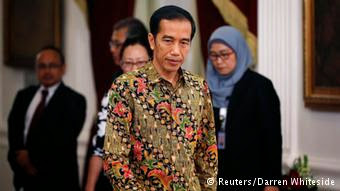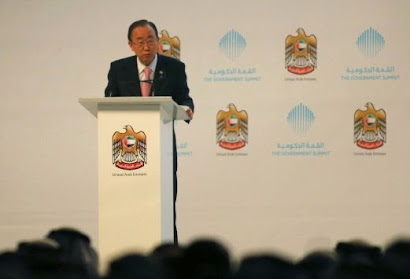Google – AFP, Charles Onians (AFP), 29 Sep 2013
 |
Gaza's Arab
Idol winner Mohammed Assaf smiles during a meeting with fans
and journalists
before a concert in The Hague, on September 29, 2013 (AFP,
Charles Onians)
|
The Hague
(AFP) - The Gazan winner of the Arab Idol talent competition, a rare symbol of
Palestinian unity, is to give his first concert outside the Arab world in The
Hague on Sunday.
Mohammed
Assaf, 24, became a national hero when he won the pan-Arab contest in June
after transfixing millions of television viewers with his soaring renditions of
Arab love ballads and patriotic Palestinian songs.
“I am
happy, this is an opportunity to be in front of a non-Arab audience, and that's
a good thing," Assaf told AFP in an interview. "I’d like to reach out
to the world.”
Organisers
said they expected the 800 tickets for the young heartthrob's concert in The
Hague's town hall on Sunday night, his first outside the Middle East and north
Africa, to be sold out.
“Music is a
unifying message," Assaf said.
 |
Mohammed
Assaf meets with fans and
journalists before a concert in The Hague,
on
September 29, 2013. (AFP, Charles
Onians)
|
"Maybe
there are different audiences, or the techniques are different in the Middle
East and in Europe and America, but what I know is music is something that when
people first hear, they love.”
Assaf
arrived in The Netherlands from his new home in Dubai and had dinner with Arab
ambassadors on Saturday evening, a spokesman for the Palestinian delegation in
The Netherlands, Roel Raterink, told AFP.
Organisers
said Palestinians from Germany and Belgium are also expected to travel to The
Netherlands for the concert, which will also be attended by most Arab
ambassadors.
Israel in
August took the exceptional step of allowing Assaf to move from the Gaza Strip
to the Israeli-occupied West Bank as a "humanitarian gesture".
Israel has
maintained a land, sea and air blockade on Gaza since 2006 which was tightened
further when the Islamist movement Hamas seized control there the following
year.
Assaf said
he was now living in Dubai "because of the conditions in my country".
"Because
of the siege, it is easier for me to go to Dubai, it makes travel easier
because I have concerts in some Arab countries and in Europe, and in America
over the next months.”
No Israeli
diplomats will be attending. Israeli President Shimon Peres is on a visit to
Amsterdam at the same time, the Israeli embassy said.
One-time
wedding crooner Assaf was also to meet members of The Netherlands' Palestinian
community before heading to Italy for another European concert, Raterink said.
Born to
Palestinian parents in Misrata, Libya, Assaf grew up in the teeming Khan Yunis
refugee camp in southern Gaza before winning the 2013 edition of Arab Idol in
Beirut in June.
His victory
sparked scenes of jubilation across the Palestinian territories.
The week
after he won, Assaf performed in front of some 40,000 fans in the West Bank
city of Ramallah.
The contest
in Beirut transfixed the viewing public with Assaf's story which saw him
sneaking out of Gaza, nearly missing his initial audition in Cairo, and then
only making it through after a fellow Gazan pulled out.
Palestinians
remain divided between the Islamist Hamas movement which rules the Gaza Strip
and its Fatah rival which dominates the West Bank-based Palestinian Authority.
On his
return to Gaza in June, Assaf called for an end to the "division"
with the West Bank, and urged unity between Palestinians.
While this
is his first performance in Europe as Arab Idol winner, he says he went to
summer camp in France in 2003 and performed in Marseille in 2006.
“We took
first prize for a cultural song. I was singing and there were guys dancing the
debke, an Arab dance," he said.
Related Article:



















.jpg)
